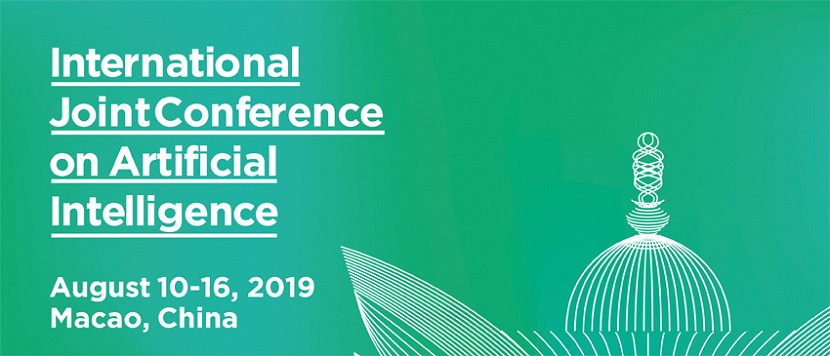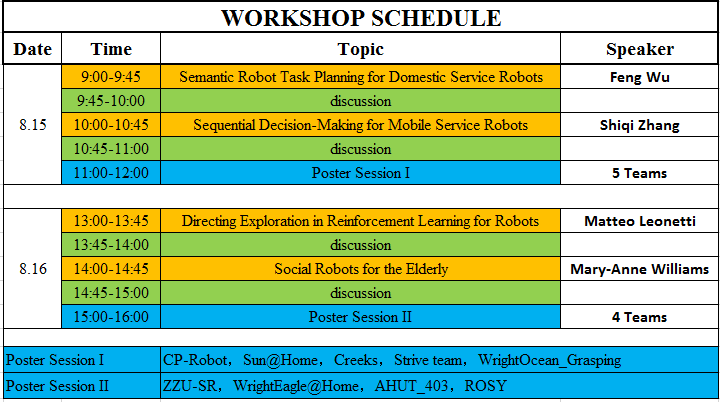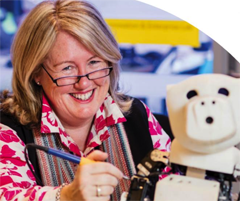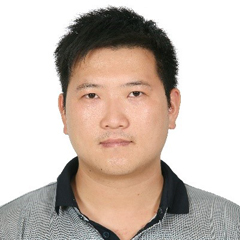
WORK SHOP


Mary-Anne Williams
Title: Social Robots for the Elderly
Abstract:
Social robots complete their tasks by interacting with people. Social robots need social intelligence and practica social skills otherwise they will be dangerous and irritating, and therefore not adopted by the elderly and society more generally. Social robots require perceptual abilities to detect, predict and anticipate human physical motion, feelings and intent. Social Robotics is an emerging scientific and engineering field and a transformational technology expected to disrupt and add value to every industry particularly in transport, health, retail and the home. This talk will highlight the major research challenges including autonomy, perceiving and understanding humans, socially aware navigation, emotional skills that allow robots to engage with humans; sociability, socialinfluence, persuasion, and trust. It will also discuss the social risks and challenges - policy, governance, safety, security, economics, ethics, and law.
Biography:
Mary-Anne Williams is a Distinguished Professor and Director of the Magic Lab in the Centre of Artificial Intelligence at the University of Technology Sydney. She is a Fellow at Stanford University, the Australian Computer Society (ACS) and the Australian Academy of Technological Science and Engineering (ASTE). Mary-Anne is a leading authority on AI and Social Robotics. She specialises in intelligent applications in health and behaviour design. She is a member of the South Western Sydney Local Health District Innovation Reference Group that helps direct strategic innovation across 7 hospitals in Sydney.
Mary-Anne chaired the Australian Research Council's Excellence in Research for Australia Committee that undertook a national evaluation of research in Mathematics, Information and Computing Sciences in 2012. She is a non-executive director of the US-based Scientific Foundation KR Inc, was Conference Chair of the International Conference on Social Robotics in 2014. Mary-Anne served 10 years on the Editorial Board for the prestigious Artificial Intelligence Journal and 4 years on the ACM Eugene L. Lawler Award Committee for Humanitarian Contributions within Computer Science and Informatics. She currently serves on the Editorial Board for AAAI/MIT Press, Information Systems Journal, and International Journal of Social Robotics.
Mary-Anne has a passion for innovation in science, technology, engineering and law. She established and continues to lead Australia's leading Social Robotics research group, which includes Steve Wozniak, co-founder of Apple. Her research team are the current RoboCup Social Robotics World Champions and have a research objective to bring science fiction to reality through the design and development of responsible social robotics.
-----------------------------------------------------------------------------------------------------------------------------------------------------------

Matteo Leonetti
Title: Directing Exploration in Reinforcement Learning for Robots
Abstract:
Exploration is a fundamental aspect of learning and adaptation, but it is also the most energy and time consuming. Exploring every possible action in the real world is impossible, and exploring most of them is dangerous. I will describe two research lines which address the problem of deciding what not to explore in different but complementary ways: through automated reasoning, and trough knowledge transfer. The first line of work is concerned with the integration of planners in the learning process, particularly taking advantage of high-level reasoning formalisms such as action languages and Answer Set Programming. The second line of work in concerned with the automatic generation of curricula, that is, sequences of tasks of increasing complexity so that the agent can learn and generalize gradually. I will discuss the application of these methods to a range of real-world systems, from autonomous service robots to micro-grid controllers.
Biography:
Matteo Leonetti is a lecturer in the School of Computing at the University of Leeds. Before joining Leeds, he was a post-doc at the University of Texas at Austin in Prof. Peter Stone's group, working on the autonomous service robots BWIBots. Before that, he was a post-doc at the Italian Institute of Technology in Dr Petar Kormushev's group, working on underwater robots in the European project PANDORA. Matteo received a PhD from Sapienza University of Rome, under the supervision of Prof. Luca Iocchi. During his PhD, he was very fortunate to be a visiting student in Andy Barto’s lab at UMass Amherst, and in Ram Ramamoorthy’s group at the University of Edinburgh. Matteo was a team leader of Sapienza’s SPQR Team, and participated in the RoboCups from 2007 to 2009 in the soccer Standard Platform League. He is now the director of the Sensible Robot Research Group at Leeds, and head of the LASR team (Leeds Autonomous Service Robots), about to enter its first international competition with the upcoming ScirRoc challange. His research is on various aspects of decision making and autonomous behaviour, particularly automated reasoning, planning, and reinforcement learning.
-----------------------------------------------------------------------------------------------------------------------------------------------------------

Shiqi Zhang
Title: Sequential Decision-Making for Mobile Service Robots
Abstract:
Service robots need sequential decision-making (SDM) capabilities to complete tasks that require morethan one action. Robot SDM is difficult for reasons such as imperfect perception, unreliable action outcomes, and incomplete domain knowledge. This talk will cover a few ways of incorporating declarative knowledge representation and reasoning into robot decision-making paradigms such as probabilistic planning and reinforcement learning. The contextual knowledge typically comes from humans, and tends to be sparse but potentially effective. The algorithms are mainly demonstrated using tasks of mobile service robots, such as human guidance, object delivery, and dialog systems.
Biography:
Dr. Shiqi Zhang is an assistant professor at the Department of Computer Science, SUNY Binghamton. He received his Ph.D. (2013) in Computer Science from Texas Tech University. Before that, he received his MS (2008) and BS (2006) from Harbin Institute of Technology in China. From 2014 to 2016, he was a Postdoctoral Fellow at the University of Texas at Austin. He co-offered a tutorial on robot decision-making at AAAI-19, and co-chaired the AAAI-18 Spring Symposium on robot goal-directed autonomy. He received a Best Robotics Paper Award from AAMAS-18. His research lies in the intersection of artificial intelligence and robotics. He is particularly interested indeveloping reasoning and sequential decision-making algorithms to help robots achieve long-term autonomy in human-inhabited, collaborative environments.
-----------------------------------------------------------------------------------------------------------------------------------------------------------

Feng Wu
Title: Semantic Robot Task Planning for Domestic Service Robots
Abstract:
In domestic service domains, task instructions are often expressed in natural language with abstract concepts when robot interacting with end users. The key challenge for robot task planning is how to map such instructions into low-level (executable) actions of a robot. To address this, we exploit the knowledge on semantic roles of common verbs defined in semantic dictionaries and then integrate it with a task planning framework with both representation language and solvers. We show that our approach can successfully handle much more tasks than the state-of-the-art on common benchmarks. Based on the planning system, our service robot achieved encouraging results in the RoboCup@Home competitions.
Biography:
Dr. Feng Wu is Associate Professor in the School of Computer Science and Technology at the University of Science and Technology of China (USTC). He received a B.E and a Ph.D. in Computer Science both from USTC in 2006 and 2011 respectively. Before joining USTC in 2014, he was a Research Fellow at University of Southampton. His research interests include planning under uncertainty, multi-agent systems, reinforcement learning, and robotics. He has published over 40 refereed papers on these topics in journals and conferences such as AIJ, JAIR, IJCAI, and AAAI.



